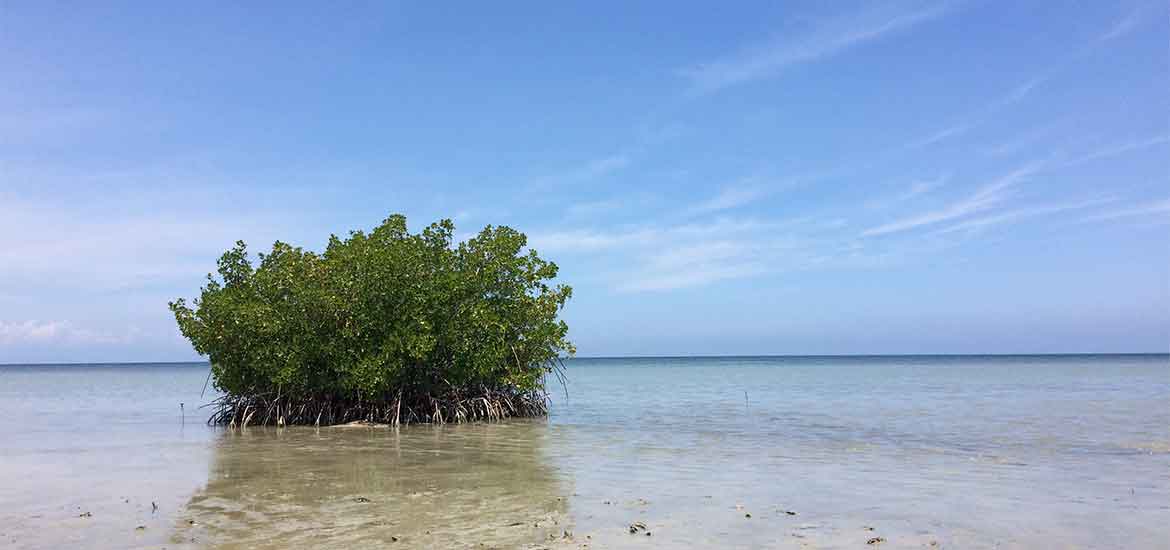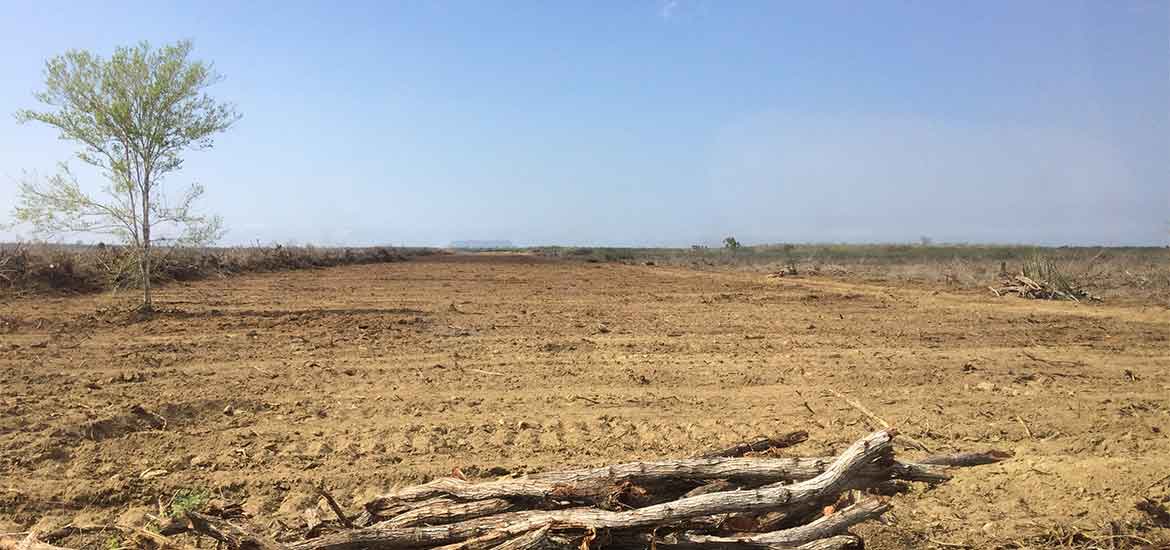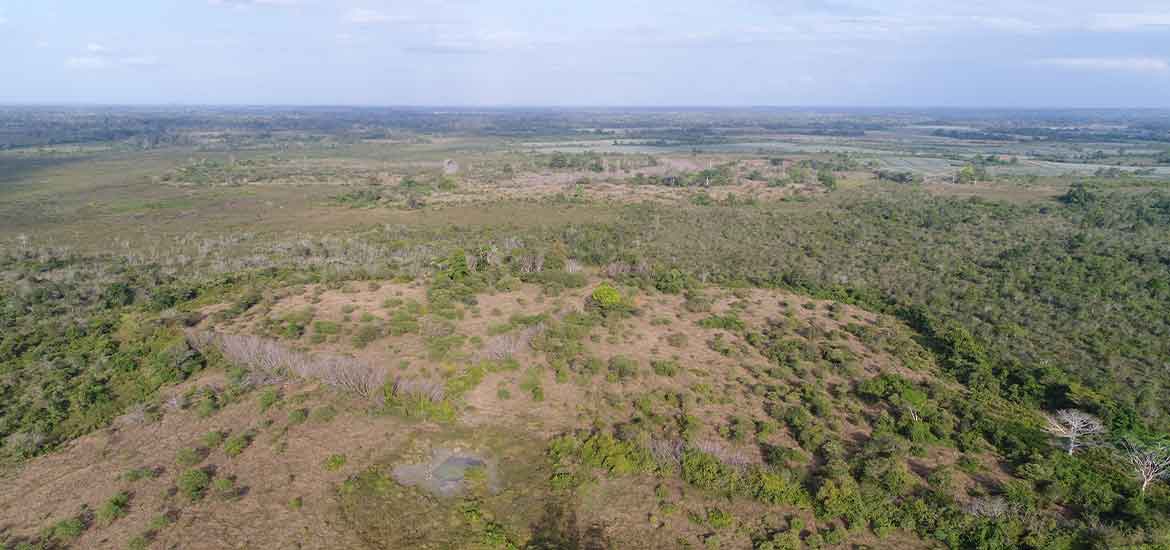Climate Action Unit



Human society is at a crossroads and faces an increasingly uncertain future if urgent concrete actions are not taken to face the multiple and growing challenges of global change and the new era of the Anthropocene.
Data from the Intergovernmental Panel on Climate Change (IPCC) show that greenhouse gas emissions continue to increase in the atmosphere to levels that will push the Earth to exceed multiple limits of planetary operation. For example, global circulation models and their climate predictions for the coming decades herald a dramatic increase in the intensity and frequency of extreme events (droughts, hurricanes, fires), combined with a potential rise in mean sea level, the conversion of rainy and cloudy tropical ecosystems to drier or even desert conditions, among others.
The negative impacts of this combination of planetary changes are intensified and enhanced by smaller-scale human actions, such as deforestation, forest degradation and the collapse of biodiversity, environmental pollution and the irrational use of water, to name a few. Together, they imply great challenges to the persistence of our agricultural and food systems and the functioning of society in general.
In this context, at CATIE we face the challenge of climate action in a transversal and transdisciplinary manner in all our work, by generating and disseminating knowledge, promoting research for development and experimentation, and the development of innovative technologies, mechanisms and tools that integrate and transcend traditional mitigation and adaptation responses to climate change. We consider the demands of multiple audiences and scenarios throughout Latin America and the world, integrating the wide range of natural and productive ecosystems, from coastal marine to the mountain tops.
Our approach
A large part of our work is focused on developing and promoting nature-based solutions, both to reduce climate impacts and to mitigate carbon emissions, while fighting the loss of biodiversity, land degradation, the reduction of ecosystem services, while promoting the strengthening of food security, the ecological restoration of landscapes and the socioeconomic well-being of our society.
In addition, we promote our work through robust international practice networks, climate finance organizations and international technical assistance (World Bank, IDB, various United Nations entities, USAID, CIRAD, EUROCLIMA and NORAD, among many others), national and local governments, and the robust Latin American Network of Model Forests, which are solid governance platforms for natural resources throughout Latin America and the Caribbean.
We work from the promotion of actions based on state-of-the-art science and technology and robust knowledge obtained through long-term monitoring in multiple environmental and productive conditions. For example, GEOCATIE, our intelligent digital ecosystem, is a national and international geospatial data infrastructure that connects people, data and technology, and offers geoservices in real time, in addition to biophysical, socioeconomic, political-administrative data, current and future climate, ecosystem services, human environment and global change.
Contiene información geoespacial con datos que se comparten bajo la filosofía de los datos abiertos (Open Data ), los cuales pueden ser utilizados, reutilizados y redistribuidos libremente por cualquier persona alrededor del mundo. A través de GEOCATIE se tiene enlaces directos y acceso a plataformas con herramientas de datos abiertos como Living Atlas Mundial, Google Earth Engine, WordClim, NASA Earth Science and Climate Engine, entre otros. Esto permite combinar datos, análisis y tecnología para la toma de decisiones en tiempo real hacia la construcción de un planeta más sostenible.
Human capital
The human resource of the Climate Action Unit is made up of a large team of specialized professionals with decades of global experience in various technologies and areas of human knowledge, which include Environment and Development (ecology, restoration and biodiversity, conservation and forestry of forests, forest governance and sociology, environmental economists, sustainable and inclusive business), Information Technology (engineers and data scientists, experts in remote sensing, big data, artificial intelligence and machine learning, cloud computing, natural resource monitoring systems), Technologists (unmanned aircraft pilots -RPAS-, analysts in Geographic Information Systems -GIS-, UX / XC -user or customer experience-), among others.
Major milestones
Given its great professional trajectory, our human team has stood out internationally for its academic performance, political advice and leadership in political-institutional processes throughout Latin America. Among other great achievements, we can highlight the participation of one of our experts as Lead Author of the IPCC, the development of a methodological toolbox to identify Synergies between Mitigation and Adaptation to climate change (SAM), the consolidation and leadership of the Network Latin American Model Forest –active for two decades–, frequent strategic training events, courses and diplomas (some with more than 35 editions per year), technical support and capacity building for the formulation of National REDD + Strategies and the development of its associated measurement, reporting and verification (MRV) systems in more than a dozen Latin American countries, large-scale atmospheric and bioclimatic modeling, a hundred scientific articles, technical series, chapters and books, methodological manuals and dozens of designed and executed projects.
Contact
Pablo Imbach, Ph.D
CAU Success Story: Blue Carbon
Blue carbon refers to carbon accumulated in the soil, living and non-living biomass of mangroves, marshes and seagrasses. Our leadership on the subject began in 2011 with the first study developed throughout the region, carried out by Dr. Miguel Cifuentes-Jara. Based on this work, we are a permanent member of the Scientific Working Group of the International Blue Carbon Initiative, which seeks to integrate into international and national metrics the contributions of these ecosystems to climate action in marine-coastal areas, and recognize the need to protect these valuable ecosystems, both for their extremely high potential for mitigating climate change and for their diverse and undeniable role in providing a myriad of ecosystem services and thus contributing to resilience and the strengthening of adaptive and media capacity life of thousands of people who reside on our coasts.
We are also a member of the International Blue Carbon Partnership, a network of governments, international technical cooperation entities and donors dedicated to promoting the notions of blue carbon globally. Additionally, this international leadership allowed our leading CATIE blue carbon expert to stand out as Lead Author of the IPCC Special Report for the Ocean and Cryosphere.
Our work philosophy on this topic encourages the development of policies and financial instruments associated with blue carbon that are firmly based on robust science. Throughout the last decade, at CATIE we have worked with national partners and the governments of Honduras, Guatemala, El Salvador, Costa Rica, Panama, Ecuador, Colombia, and the Dominican Republic, with particular emphasis on mangrove ecosystems. Thus, our technical assistance is based on the recognition and inclusion of these important ecosystems in public policies, to increase their level of protection and integrate for their management innovative mechanisms for conservation, financing and involvement of the communities that depend on them.
Costa Rica, Panama, Colombia and the Dominican Republic recognized the important scientific and technical advances facilitated and promoted by CATIE in the matter, and included in 2020 goals of adaptation, conservation, sustainable management and restoration of mangroves, within their respective National Contributions. Determined (NDC). In this context, they will currently continue to strengthen the technical procedures and political frameworks for the integration of blue carbon into the national greenhouse gas inventories and the national baseline under the international framework of the UNFCCC. In this sense, we are currently developing projects for technical assistance, research for development, political facilitation and ecological rehabilitation of mangroves in Costa Rica and the Dominican Republic.
